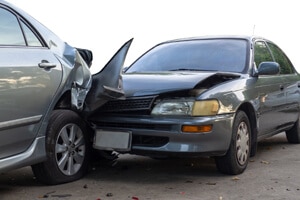 Traffic accidents are always unfortunate, and they can frequently leave you injured and left facing unexpected medical expenses. If you’ve been injured in a car accident in North Carolina, you might be able to recover damages by filing a personal injury claim. But to have a valid claim, you have to prove that the other driver was reckless or negligent. 99% of injury claims at Auger and Auger are focused on negligence.
Traffic accidents are always unfortunate, and they can frequently leave you injured and left facing unexpected medical expenses. If you’ve been injured in a car accident in North Carolina, you might be able to recover damages by filing a personal injury claim. But to have a valid claim, you have to prove that the other driver was reckless or negligent. 99% of injury claims at Auger and Auger are focused on negligence.
Negligent behavior by car drivers, equipment manufacturers, and other parties is often the cause of many car accidents in North Carolina. Negligence is an important element that a reliable and experienced car accident lawyer in North Carolina will have to prove to win these car accident cases. Proving negligence requires a thorough and comprehensive review of the circumstances leading up to the car crash. You have to establish that the party allegedly at fault refused to follow or otherwise ignored what is known as their legal duty of care.
However, remember that negligence can be a tricky and difficult concept for non-lawyers to understand. It is even more challenging to prove. This is where a personal injury attorney can be valuable. If you’ve sustained an injury that you think is someone else’s fault, understanding the concept of negligence is essential for determining whether you have a valid claim.
What Are A Driver’s Responsibilities?
All drivers in North Carolina have a duty to exercise reasonable care to avoid injuring other drivers and pedestrians. This means that, as a driver, you must obey traffic laws, drive safely and responsibly, and be aware of road conditions and construction work zones. Any time someone lapses in these duties, either intentionally or as a result of carelessness, they are being negligent.
What Is Negligence?
Negligence is a failure to exercise reasonable care to prevent foreseeable accidents that could cause an injury to somebody else.
For example, distracted driving is a form of negligence. Although a distracted driver might not intentionally cause a car crash, they chose to use a smartphone while driving. And this negligent action can lead to someone else’s injuries.
Did you know that acting in a specific way or failing to act can both be considered negligence? For instance, excessive speeding can be deemed negligence, as can failing to check your blind spot before changing lanes. Note that whether or not somebody acted negligently is often measured from the point of view of what a reasonably prudent individual would do in the same or similar circumstances.
Four Main Elements Of A Negligence Claim
Duty Of Care
As a driver, you are expected to exercise a reasonable degree of care to avoid injury to other people on the road. You are also expected to foresee potential issues and problems and act accordingly in order to avoid collisions.
In most ways, following your duty is quite straightforward: don’t speed, and don’t drive recklessly. You should obey all road signs and traffic lights. It is important to be aware of the potential harm your lack of attention (negligent behavior) can cause and act with reasonable precaution to avoid the risk of harm.
Breach Of Duty
A breach happens when a driver fails to exercise the proper level of care. They may fail to pay full attention to their driving skills, the road conditions, the traffic laws, weather, and many other factors, all of which result in a breach of duty to take adequate care when they are driving.
Examples of a breach of duty include speeding, crossing into the other lane, taking a U-turn across oncoming traffic, or driving while text messaging. If you can prove that another driver has breached their duty of care in a similar fashion, you’ve established the second element of negligence.
Direct Causation (proximate Cause)
To win a negligence claim, it is not enough to merely prove that another driver took a dangerous action or otherwise breached their duty of care. It also has to be proven that the breach directly triggered the accident or otherwise directly caused the injury or harm to the other person. In other words, the car crash wouldn’t have happened had the driver been more careful and vigilant.
Put simply: there must be a reasonable connection or a relationship between the conduct and the result; or a cause and effect.
Damages (accident Costs)
Without any sort of losses or damages, there is no financial claim. Damages are losses or expenses caused by the car crash and the resulting injuries. These must be able to be expressed in monetary terms. Keep in mind that while damages generally cover finances like hospital bills and missed income, they can also apply to abstract losses like your loss of enjoyment of life. The costs of damages must be documented, including their direct relationship to the accident in question.
Proving Negligence With Assistance From A North Carolina Crash Lawyer
As you can see, proving negligence is a vital element of winning a personal injury case. The claimant must be prepared to indicate which specific dangerous actions the at-fault driver took. Injured claimants must also have full documentation available, including a medical opinion tracing the injury to the accident.
Having a car accident lawyer in North Carolina help your case can make establishing the parts of negligence easier, raising your chances of a successful claim. Your personal injury lawyer will examine the accident scene and the cars involved. Proving negligence often requires comprehensive knowledge of North Carolina laws that apply to your case. It also requires a careful analysis of all the facts.
You can also help your case by documenting every little thing you can about the accident. Any photos taken at the scene are also good to use as evidence. These days, many people in North Carolina have their cars equipped with small cameras called dashcams. These cameras can record their driving as well as any accident they are involved in. Note that the accident report may be used as evidence, as could any statements from witnesses and CCTV footage that may be available from a nearby business.
How Auger & Auger Handles Car Accident Claims
The attorneys at Auger & Auger Accident and Injury Lawyers have a well-earned reputation for offering our clients aggressive and professional legal representation. We understand that being injured in a car accident is an overwhelming and traumatic experience. This is why we provide each client with the knowledge, compassion, expertise, and the highest level of service.
Negligence is an essential aspect of any auto accident claim in North Carolina; however, it can be difficult to understand, let alone prove. A competent and experienced car accident lawyer will help you during your car accident claim process, raising the chances that you will receive the compensation that you need.
So, if you or a family member has been injured in a car accident, you should have the superior legal representation that we offer. We provide a free consultation to everyone recently involved in a car accident. Call our office at 800-559-5741 or complete our online contact form to set up a free consultation today.
















